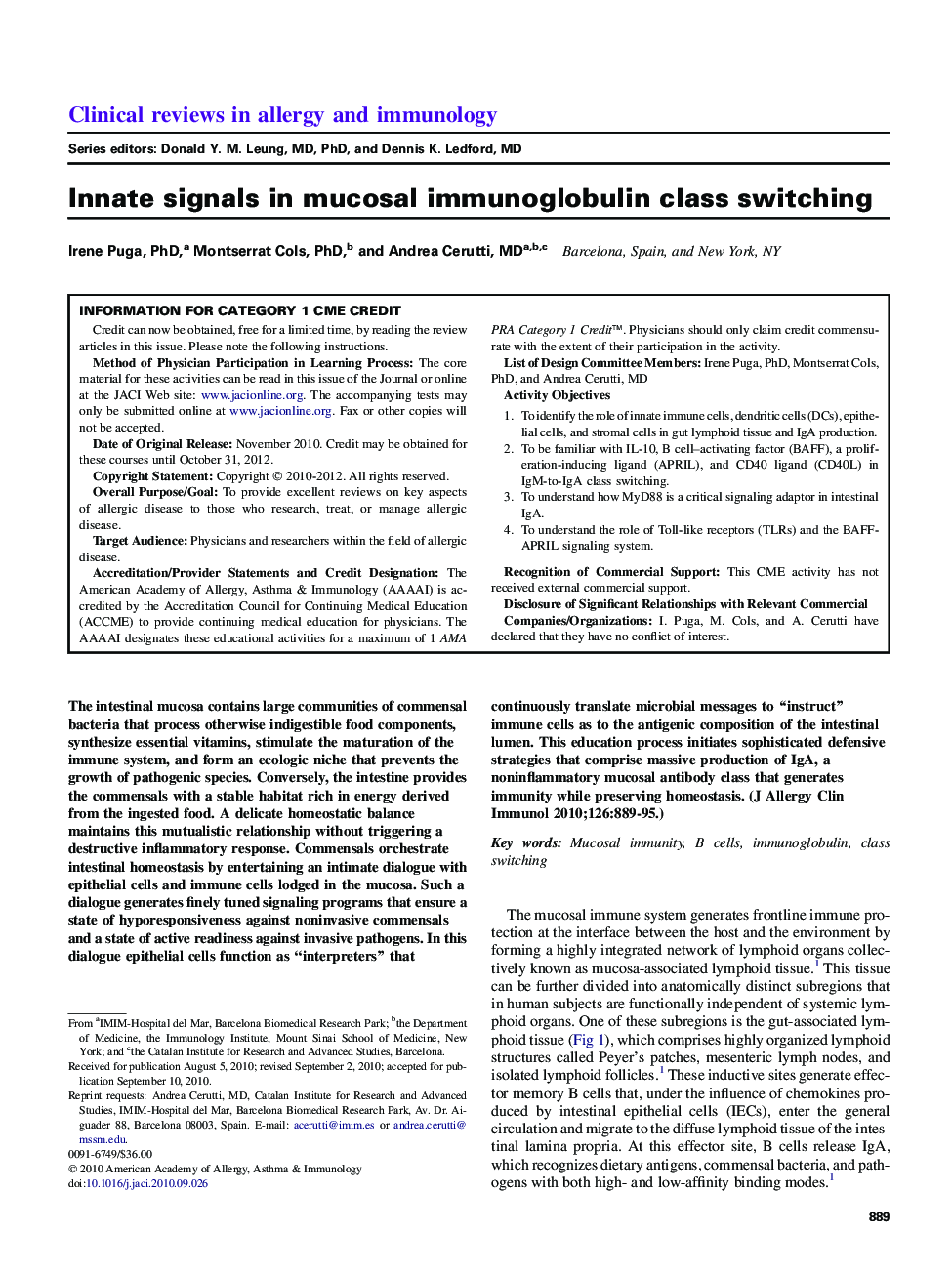| Article ID | Journal | Published Year | Pages | File Type |
|---|---|---|---|---|
| 3199283 | Journal of Allergy and Clinical Immunology | 2010 | 7 Pages |
The intestinal mucosa contains large communities of commensal bacteria that process otherwise indigestible food components, synthesize essential vitamins, stimulate the maturation of the immune system, and form an ecologic niche that prevents the growth of pathogenic species. Conversely, the intestine provides the commensals with a stable habitat rich in energy derived from the ingested food. A delicate homeostatic balance maintains this mutualistic relationship without triggering a destructive inflammatory response. Commensals orchestrate intestinal homeostasis by entertaining an intimate dialogue with epithelial cells and immune cells lodged in the mucosa. Such a dialogue generates finely tuned signaling programs that ensure a state of hyporesponsiveness against noninvasive commensals and a state of active readiness against invasive pathogens. In this dialogue epithelial cells function as “interpreters” that continuously translate microbial messages to “instruct” immune cells as to the antigenic composition of the intestinal lumen. This education process initiates sophisticated defensive strategies that comprise massive production of IgA, a noninflammatory mucosal antibody class that generates immunity while preserving homeostasis.
